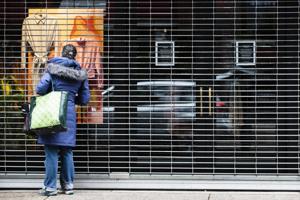Small rainy day fund may complicate Pennsylvania’s economic recovery from coronavirus, analyst says

(The Center Square) – The state of Pennsylvania has a low share of rainy day funds – just 1% of expenditures – and ranks 27th among the states in terms of economic coronavirus exposure, according to WalletHub analyst Jill Gonzalez.
WalletHub analyzed the states’ economic exposure to the virus using two metrics. The first involved highly affected industries and workforces, with the accommodations, food service, arts, entertainments and recreation industries given double weight.
“The state’s unemployment claims are recovering quickly,” Gonzalez said. “This is because there are small shares of employment from some of the highly affected industries like accommodation, food services and retail trade. These industries only make up a small part of Pennsylvania’s GDP, which is why the economy was less exposed.”
But education has been highly affected, according to Gonzalez. A report from the Pennsylvania Budget and Policy Center indicated the state only funds 33% of instructional expenses for local schools. Gov. Tom Wolf’s budget proposal includes $7.6 billion, a $1.35 billion increase over last year.
WalletHub also evaluated what state resources were available to help businesses recover, giving double weight to a state’s rainy day fund, its share of workers with paid sick leave and the share of people who work from home.
Republican legislators are proposing a set of bills that will help small businesses recover from the effects of COVID-19. Even though businesses are reopening, they still have challenges, according to a statement from Sens. Ryan Aument, Camera Bartolotta, Kristin Phillips-Hill and Judy Ward.
Recovery is likely to take longer than weeks or months to fully recover from the extraordinary struggles of the past year, they said in the statement.
The Prioritize PA Small business bill package includes loan and tax credit programs as well as changes to state tax laws they say level the playing field between small and large businesses.
The package also includes the elimination of some regulations and greater oversight over existing ones.
Local governments can be creative in helping businesses get back on their feet, according to Marcy L. Karin, a law professor at the University of the District of Columbia’s David A. Clarke School of Law.
“Maybe that looks like forgiving a particular type of business license fee for a year,” Karin told WalletHub. “Other localities might create campaigns to highlight safe ways for consumers to shop, eat, travel, or meet to conduct business. Other local governments may be able to authorize additional funding of benefits, or to raise caps on benefits that otherwise have run out, but they must do so in ways that minimize employers’ costs.”
Disclaimer: This content is distributed by The Center Square
